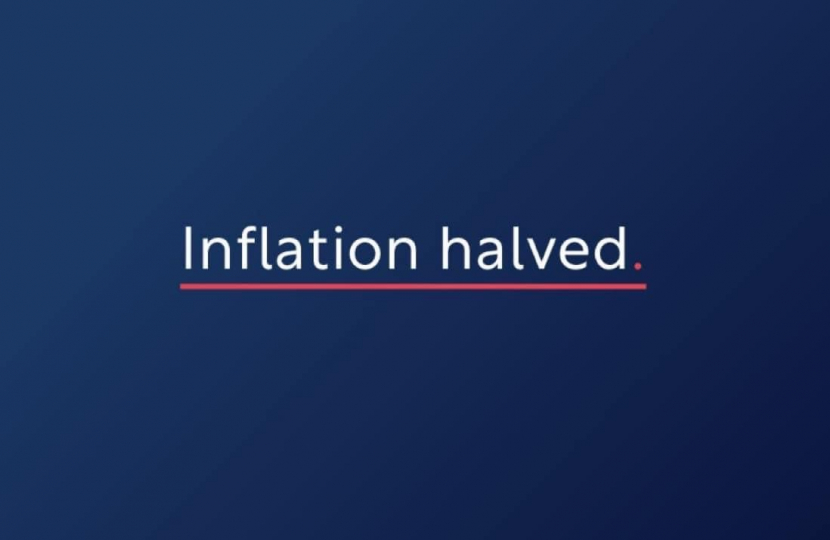
Weekly Column
New figures published this week on inflation and jobs bring some welcome economic news. The latest ONS data shows inflation has fallen to 4.6 per cent – half the level it was at the beginning of the year. On employment, official figures show there almost 4 million more people are in work than in 2010 and economic inactivity is down by almost 300,000 people since the pandemic peak.
Halving inflation was one of the pledges the Prime Minister made in January because high inflation makes everyone poorer. By taking action such as holding down energy bills, getting more people into work, resisting calls for extra borrowing, and putting in place targeted support for the most vulnerable, this priority has been achieved. Inflation is still too high needs to continue to fall to ultimately get back to the 2 per cent target, but it is welcome that it has come down significantly from a peak of 10.7 per cent.
On jobs, it is worth noting that thanks to businesses creating roles, unemployment has halved from the level inherited from Labour in 2010 – a period through which the UK has had the third fastest growth rate of major economies.
In North West Norfolk, the latest figures show that 1,615 people on benefits were looking for work, which was 3.0 per cent of the population aged 16-64. The equivalent UK claimant rate was 3. Per cent. There were 335 young people from 18-24 looking for work, while the number of people on company payrolls is up 398.000 in the past year, hitting a record high.
This government’s approach to welfare is based on fairness and having a system that supports people who want to work – in return for receiving benefits people are required to make a claimant commitment on what they need to do to look for work. In contrast, it is striking that 1.4 million people spent almost a decade on out of work benefits under the last Labour government. But the government needs to do more to provide extra help to people with health conditions and disabilities and help more people gain the financial, social, and health benefits of work.
Next week the Chancellor will deliver his Autumn Statement. I met him recently to talk about what should be his priorities based on meeting firms locally. These include helping small businesses, extending business rate reductions for leisure, hospitality, and retail businesses, measures to help people get on the housing ladder - as well as speeding up the business case process for new hospitals such as QEH.
This set piece event in the House of Commons will be squarely focused on growth and further measures to fill more of the 1 million vacancies companies have, rolling out new expanded free childcare offer, and encouraging business investment.
The economy has come through Covid and is dealing with the effects of the illegal war in Ukraine. But by doing more to unlock enterprise and removing regulatory and other barriers holding companies back, we can help secure the long term sustainable growth in our country and reduce the burden on taxpayers.
First published in the Lynn News on 17 November 2023

